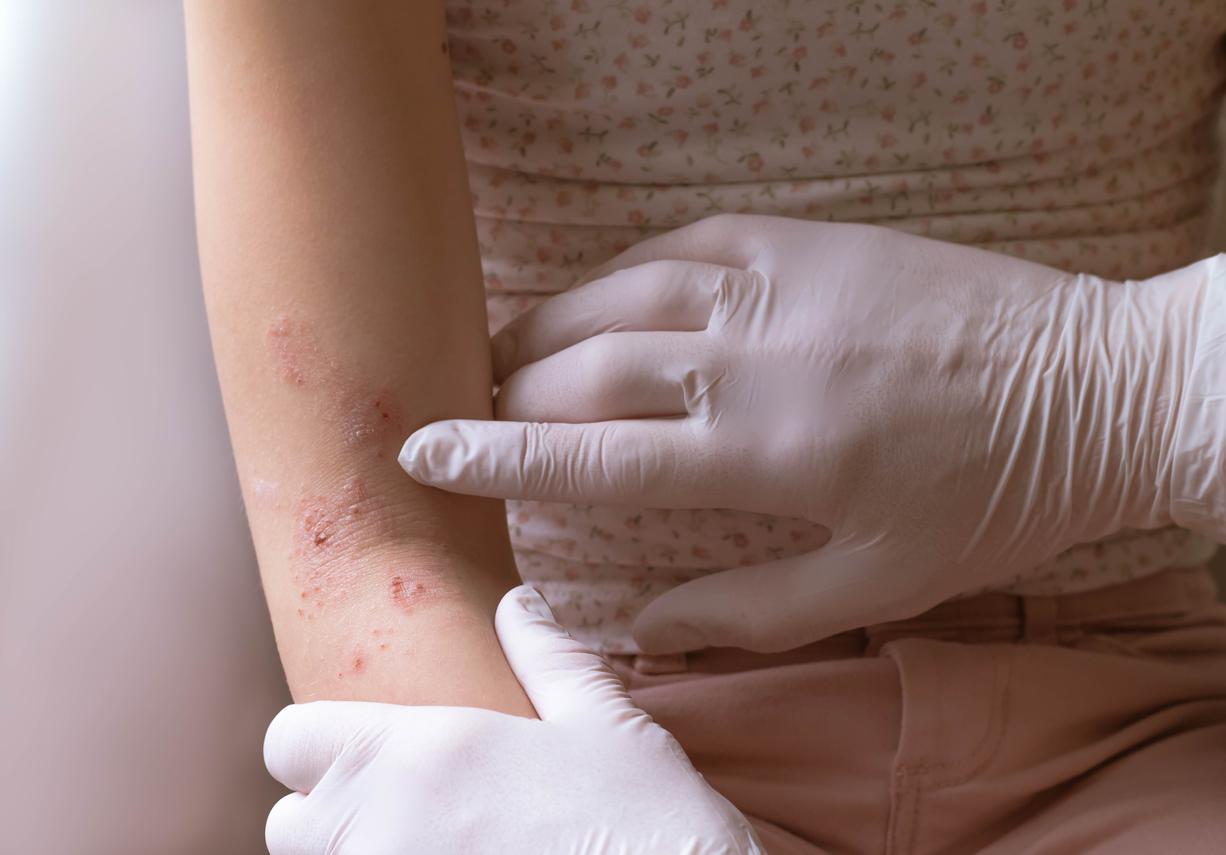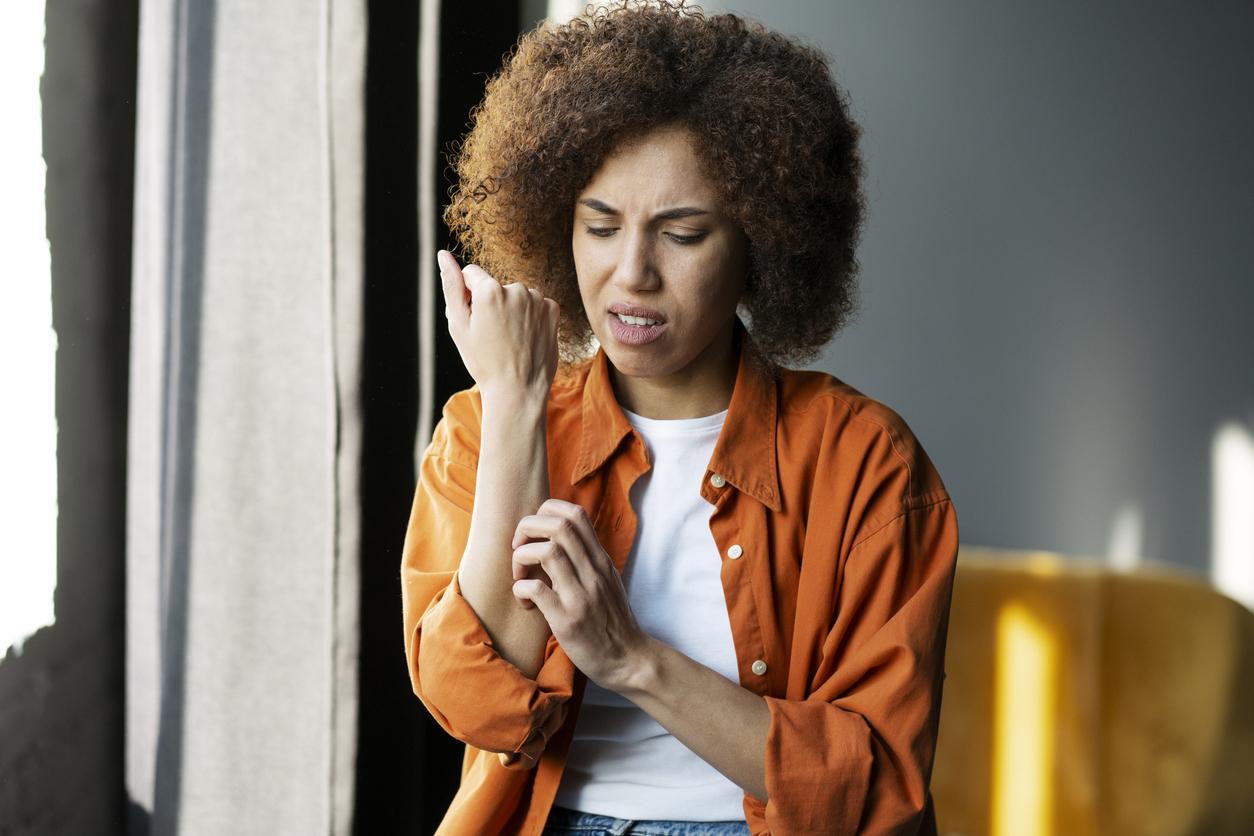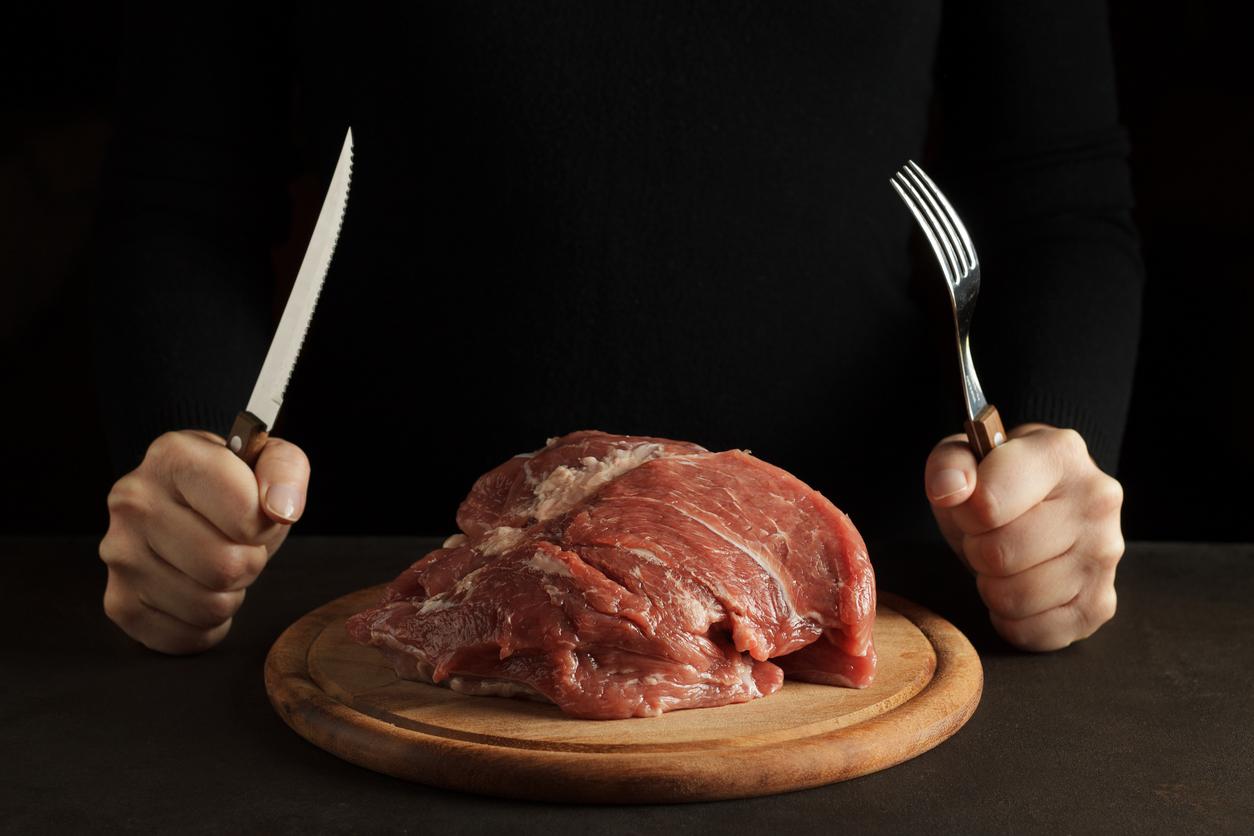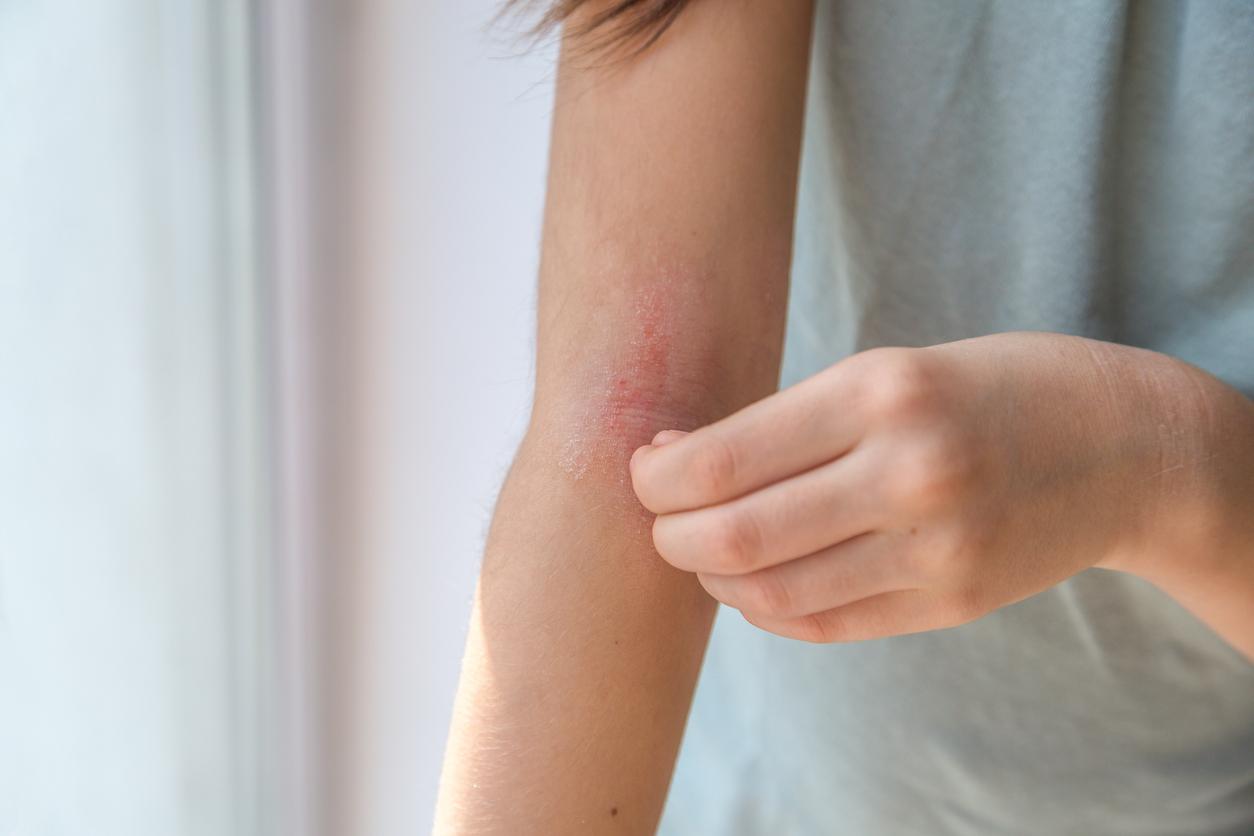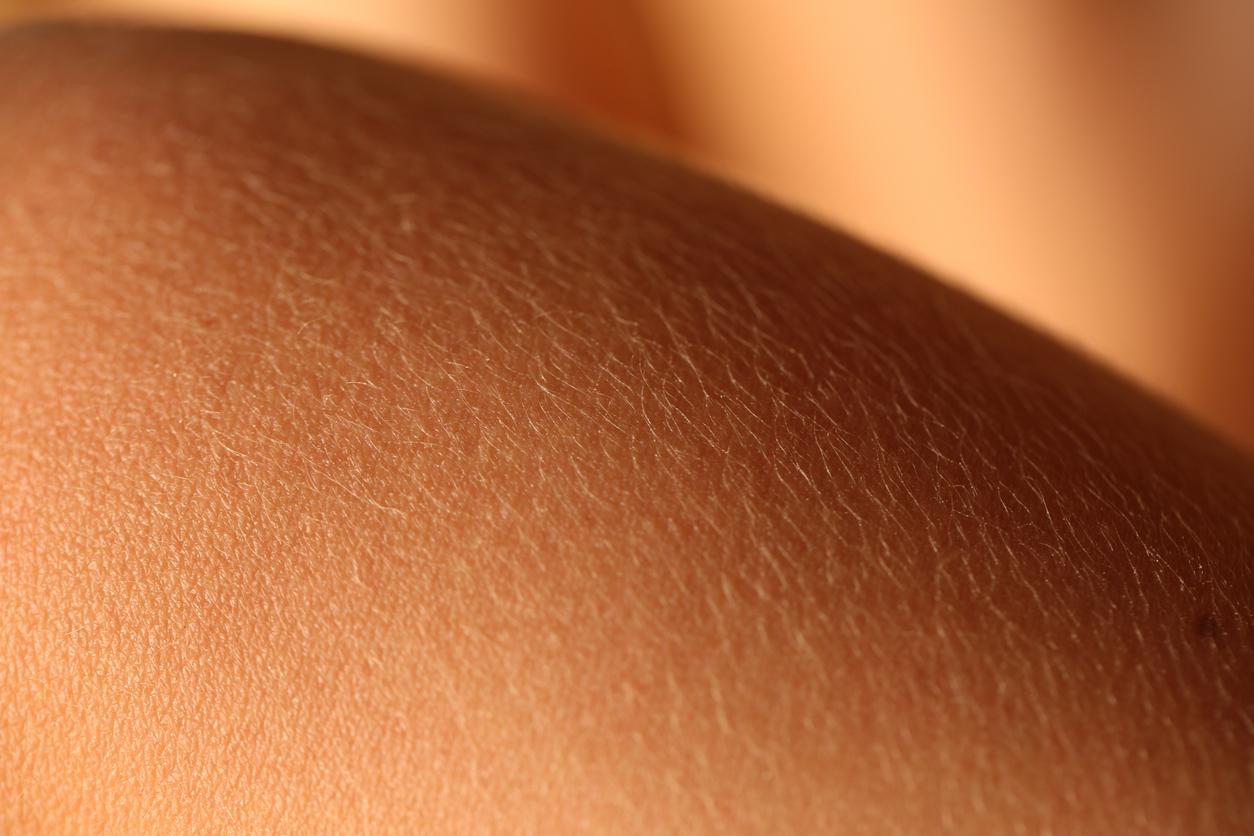Symptoms of eczema are sometimes hard to spot. Very dry hands, which no cream soothes, are a warning sign.

- People who had eczema (atopic dermatitis) as children have a higher risk of developing hand eczema.
- Hand eczema is the most common skin disease in France.
- 5 to 7% of those affected suffer from severe forms.
Dry hands, which pull, even which scratch. What if it wasn’t just dry skin? It could be hand eczema. L’American Academy of Dermatology gives advice on how to spot this common pathology, in a communicated published on September 27, 2022.
The many symptoms of hand eczema
“If your hands are extremely dry and sore and using moisturizer throughout the day doesn’t help relieve them, it may be hand eczema.” warns Dr. Dawn Davis, dermatologist at the Mayo Clinic in Rochester (USA). Generally, the disease is manifested by patches of irritation, the color of which ranges from red to gray to brown. This can lead to itching, a burning sensation, the formation of blisters or cracks, or even bleeding. If in addition to dry skin, you have any of these symptoms then it is probably eczema.
What are the causes of hand eczema?
“Without proper treatment and preventative measures, hand eczema can get worse.”, warns Dr. Dawn Davis. To act on the disease, it is necessary to understand its causes. “Hand eczema can appear due to different triggers, continues the dermatologist. Some patients will experience irritation as a result of cooler, drier temperatures, while for others it may worsen during the warmer months due to sweating.“In some people, wet and poorly dried hands may cause a flare-up, while in others it may be the result of an allergic reaction.”Chemicals like solvents, detergents and cement can increase the risk”indicates theAmerican Academy of Dermatology. Latex or metal jewelry can also cause an allergic reaction.
Prevention is the best way to act against hand eczema
According to Dr. Dawn Davis, the main treatment for eczema is a routine adapted to this sensitive skin. It is thus necessary to use gentle cleansers for hand hygiene, not to wash them too often and to rinse them well, especially between the fingers. Then, it is important to dry them gently with a towel, rather than in the open air. The dermatologist advises using fragrance-free creams and ointments. In case of contact with allergenic substances, the wearing of gloves is recommended. During a crisis, she explains that there is a technique to relieve the hands: prepare a solution based on white vinegar, “effective in preventing infections and killing bacteria“. It’s about diluting white vinegar with water.”The patient dips a cloth in the mixture, wrings it out, and wraps it around his hand like a burrito, then puts a white sock over it for several hours or before going to bed., she says. In case of persistent eczema, she insists on the need to consult a health professional, to find the most suitable treatment.










